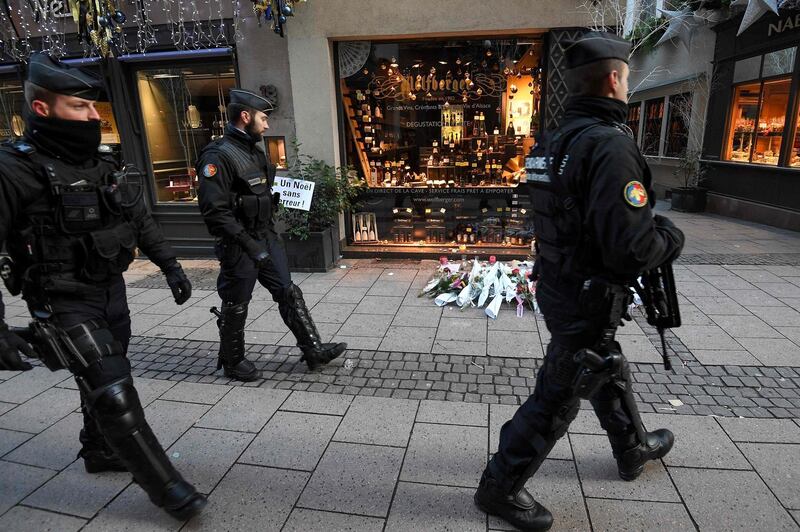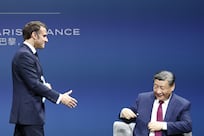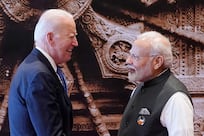The Europe-wide manhunt that was sparked this week after a deadly terror attack on the famed Christmas market in the French city of Strasbourg is a grim reminder that the security threat posed by extremists remains as strong as ever.
It is just over three years since the series of terrorist attacks in Paris that culminated with the Bataclan theatre massacre, in which 130 people were killed, provided a graphic illustration of the ability of Islamist terror cells to inflict carnage on the streets of Europe.
And while there have been many similarly motivated attacks that have taken place since then – Nice and the deadly assaults on London last year come to mind – there was a general feeling within Europe's intelligence community that the tide had turned, and that the ability of terror groups to attack European targets at will was on the wane.
The recent decline in such attacks could be attributed to two key factors. Firstly, the fact that the Syrian conflict was slowly and painfully drawing to a close meant that the supporters of groups such as Al Qaeda and ISIS no longer had the ability or the support to inspire and stage such violence.
In the past, terrorists have sought to justify their actions by claiming that thousands of Muslims have been killed by military operations conducted by the US-led coalition, in which countries such as Britain and France played a prominent role, and that they are acting on behalf of them.
But the success of the coalition's mission has resulted not only in the destruction of ISIS’s self-proclaimed caliphate in northern Iraq and Syria. It also means the group’s leadership has no established base from which they can launch terror missions, while followers who still support the cause find themselves displaced and dispersed around the region.
The other significant factor that has helped to reduce the number of attacks in Europe has been improved intelligence-sharing between European governments, with Britain’s MI6 playing a lead role.
As a key player in the Five Eyes network, which was established at the end of World War Two and also includes Canada, Australia, New Zealand and the US, Britain has a distinct advantage over its European allies in terms of the quality of the intelligence it can share – intelligence that has already helped to thwart a number of major attacks on the European mainland.
Indeed, Britain has made maintaining this vital relationship with its European counterparts a key bargaining chip in the Brexit negotiations, which may yet help it to secure something approaching a reasonable exit deal from the EU.
This week’s Strasbourg attack, therefore, will cause a certain degree of alarm among Europe’s intelligence-gathering community that, despite all the very tangible efforts that have been made in recent years to contain the threat posed by Islamist extremists and lone-wolf terrorists, they can still bring mayhem to the streets of Europe.
It would, of course, be premature to form any lasting conclusions about this week’s Strasbourg attacks, not least because there are already conflicting claims as to what may have inspired Cherif Chekatt, the principal suspect, to carry out the orgy of violence that left two people dead and a third victim with brain damage.
Checkatt, 29, who was born in Strasbourg and lived alone on one of the city’s run-down housing estates, was well known to the authorities throughout Europe, having received 27 convictions in France, Germany and Switzerland for crimes including burglary and assault.
Indeed, residents of the area where he lived claimed that he was not known at the local mosques, and that his killing spree might have been the precipitated by distress at an attempted robbery that went wrong.
But the reason that anti-terrorist specialists are now involved in the inquiry stems from the revelation that Checkatt has been on France’s “S-file” terrorist watchlist since 2015, following reports that he had been radicalised while serving time in a French prison. The French authorities also say that during his time in prison Checkatt became known for violence and repeated attempts to convert fellow inmates to radical Islam.
One of his brothers, who was taken into custody along with other family members shortly after the attack, is also, according to the French newspaper Le Parisien, believed to be a follower of Salafism.
All of this activity was sufficient to lead France’s anti-terrorism authorities to consider Checkatt an extremely high-risk suspect, to the extent that France’s DGSI intelligence service placed him under “active surveillance”.
The other fact that has led investigators to conclude that the attack was motivated by his association with Islamist extremism were reports from witnesses that Checkatt shouted “Allahu Akbar” before opening fire.
But while the French authorities have clearly taken a close interest in Checkatt’s activities, it now appears they have not been so active in sharing the information they have acquired with their European partners.
As the manhunt for Checkatt spread to neighbouring Germany, the German Federal Criminal Police Office, which has responsibility for handling cases related to terrorism, complained that they had not received any indication that Checkatt posed a potential terror risk.
If true, this is deeply worrying. Close co-operation between the intelligence services of countries allied in the fight against terrorism is vital attacks are to be prevented. Failure to do so will only lead to further acts of carnage, on the streets of Europe and elsewhere.
Con Coughlin is the Daily Telegraph’s Defence and Foreign Affairs Editor





